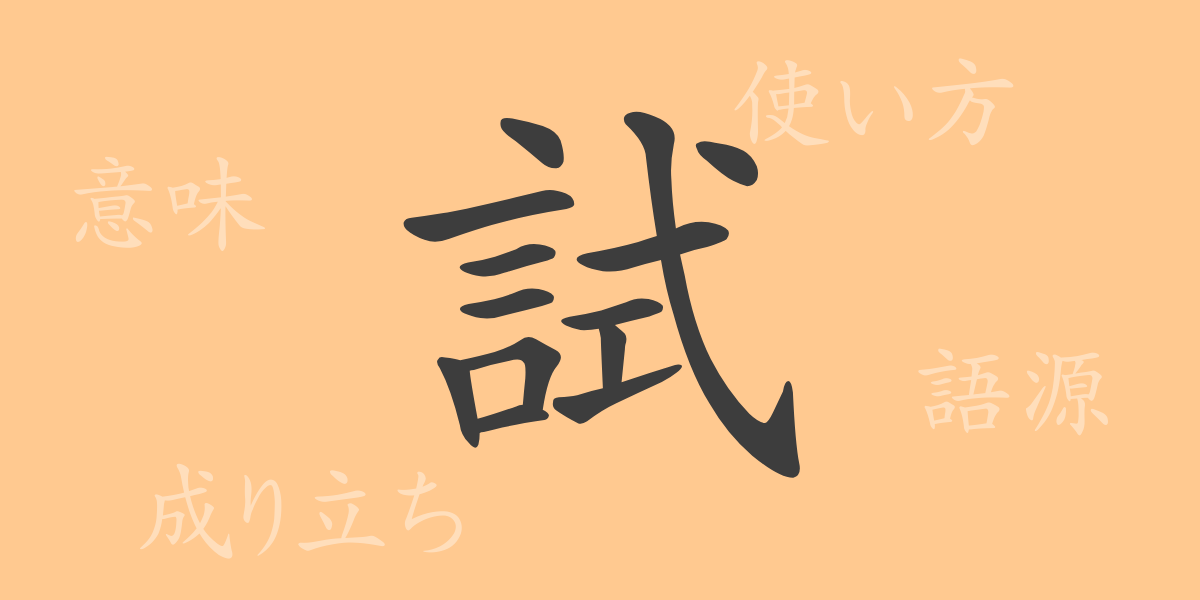Japan’s written culture is profound, with kanji characters holding multiple meanings in their shapes and sounds. The commonly used kanji “試(し)” is one of those frequently seen in daily life, appearing in various contexts. This article focuses on the character “試(し)”, exploring its origins, meanings, usage, and related idioms and proverbs. By understanding the history and culture embedded in each character, we can appreciate the beauty and complexity of the Japanese language more deeply.
Origin of 試(し) (Etymology)
The kanji “試(し)” can trace its origins back to ancient Chinese oracle bone script. It is believed to have derived from the character “式(しき)”, meaning “to try”. The character is composed of the “言(ごんべん)” radical, representing speech, and “弋(よく)”, meaning “equal”. This composition signifies the act of testing through verbal confirmation or examination.
Meaning and Usage of 試(し)
The kanji “試(し)” means “to try”, “to test”, and “examination”. It often conveys the uncertainty of attempting something or the anticipation of a new challenge. It is also used in specific situations such as school exams or product quality testing.
Readings, Stroke Count, and Radical of 試(し)
The kanji “試(し)” has multiple readings and is used differently depending on the context.
- Reading: The on’yomi (音読み) is “シ”, and the kun’yomi (訓読み) are “こころみる” and “ためす”.
- Stroke count: 試(し) has 13 strokes.
- Radical: The radical is “言(ごんべん)”, which relates to words and speech.
Idioms, Phrases, and Proverbs Using 試(し)
Many idioms, phrases, and proverbs in Japanese include the kanji “試(し)”. Here are a few examples:
- 試験(しけん): A test or examination of knowledge or skills.
- 試行錯誤(しこうさくご): The process of trial and error to find the best method through repeated attempts and failures.
- 試練(しれん): A difficult situation or challenge that tests a person’s will or ability.
- 試みの石(こころみのいし): A standard or criterion used to test something.
- 石の上にも三年(いしのうえにもさんねん): A proverb meaning perseverance leads to success, representing the spirit of continued effort despite challenges.
Conclusion on 試(し)
The commonly used kanji “試(し)” is vital for expressing the idea of trying new things or testing one’s abilities in daily life. Understanding its origin and meaning can enhance the enjoyment of rich Japanese expressions. Moreover, knowing the idioms and proverbs containing “試(し)” helps deepen the understanding of its usage and nuances. Through this article, we hope you gain insights into the multifaceted aspects of “試(し)” and further your knowledge of the Japanese language.

























